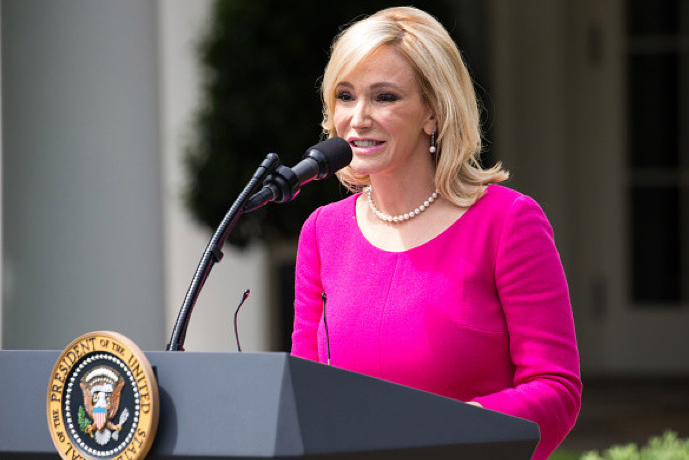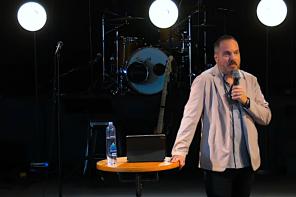Trump’s November victory has generated renewed interest in the prosperity gospel, a diversity of theological beliefs that ascribe divine health and wealth to the Christian believer.
When Paula White and other prosperity preachers declared support for Trump, these theologies declaring health and wealth were brought back to the forefront of the religious conversation. Christians who advocate for justice rebuff the prosperity gospel’s more well-known claims—such as supernatural access to money or supernatural protection from illness—but this rebuff should not be understood as a decline in the influence these beliefs.
The prosperity gospel hasn’t declined, but it has morphed.
Instead of the materialism brandished by popular televangelists in the past, the prosperity gospel now operates in subtler, more culturally palatable ways. Gone are the days of Tammy Faye and Jim Bakker’s matching Rolls Royces, “Money Cometh to You” conferences, or Creflo Dollar asking for a plane. Instead, prosperity preachers offer lifestyle management, paths to financial success, and encouragement to remain positive in spite of challenges.
In 2013’s Blessed, Kate Bowler describes these gentler takes on prosperity theology as trending toward positive thinking and Christian self-help. She describes the soft prosperity gospel as “therapeutic and emotive, a way of speaking that shed its Pentecostal accent for a sweeter and secular tone.” Instead of houses and cars as evidence of faith, there is now an polished suggestion that you can have it all— the right body, a great spouse, and abundant opportunities—regardless of your socioeconomic status. Bowler considers Joel Osteen an example of this new, softer prosperity gospel.
Prosperity preachers began to refashion their ministers into sleeker, more inclusive forms in the early 1990s. More than a decade removed from the scandals wrought by the prosperity stars of the 70s, the movement now had people from all walks of life, talking in ways that a broader audience could relate to. Bowler writes that “the movement had developed a smooth new language and style of persuasion that admirably fit the times.”
Prosperity teaching began to filter into churches nationwide via all types of media. No longer was prosperity preaching done only by Pentecostals and practiced by only the lower classes. It became a reasonable practice of Christian faith for all.
Yet, these ideas about the availability of wealth do not square with the evidence. Given that the average person does not have more than $1,000 in a savings account, can’t afford an extra expense of $500 without using credit, and has experienced food and/or housing insecurity at some point in their life, it is apparent that theologies of prosperity are not impacting the material realities of those who believe them.
Despite their ability to fit the sensibilities of the day, these theologies still legitimize the ills of society and place the blame for systemic injustice at the feet of the defenseless. Prosperity theologies obscure the strong cultural and institutional critique that can be found in the scriptures and in liberation theologies of marginalized communities.
But labeling all prosperity beliefs as greedy, unlearned, or uncultured will not rectify the issue. Problematic as they are, these are the beliefs of everyday people who are using theology to address the lack of basic necessities in their lives. And in light of the evidence presented, prosperity for many of them would merely mean consistent access to these necessities. For these people, academic theological practice is not accessible and fails to present an answer for their daily struggles.
The danger is not that someone is believing in “wrong” or “bad” theology. Rather, it is that the prosperity gospel does precious little to urge adherents to create a better world for themselves or their neighbors. It posits Trump as someone to admire rather than oppose. It makes racism, sexism, and poverty personal issues instead of societal sins.
To continue to support theologies of prosperity is to ignore the evidence of the financial peril that many people people—including those who voted for Trump—now live with. In a time when so many people have lost so much and stand to lose even more, prosperity theologies may have softened their edges, but the danger they pose remains the same.





